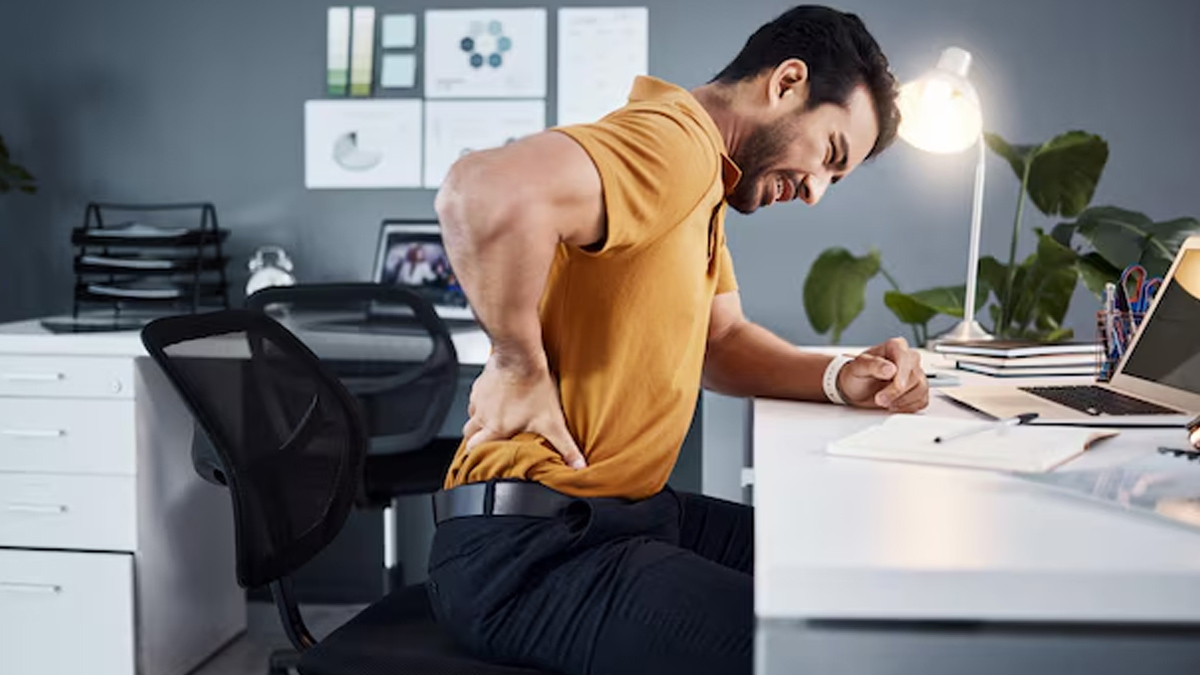
When you consider digestive issues such as bloating, acidity, or constipation, sitting or standing posture is likely the last thing to cross our mind. We typically attribute such issues to food habits, stress, or inactivity. However, what if how you sit at our desk or slouch on the couch has more to do with our digestive health than you might imagine? Research and medical experts now indicate that posture and digestion are more interlinked than we previously believed. In fact, that slump that you fall into after meals may be slowing down our gut.
Table of Content:-
In an exclusive interaction with the editorial team of Onlymyhealth, our expert, Dr Pooja Pillai, Consultant – Physician, Aster CMI Hospital, Bengaluru, explained the link between posture and digestive issues, and here is what you need to know.
How Posture Affects Digestion
“Digestion is an activity based on movement, muscles tighten, food travels the digestive tract, and organs open up and close to perform their function. But when you slouch forward or lean to one side, you push in on your abdominal cavity. This force can disrupt the natural flow of digestion and even affect how your internal organs work,” she explained. Here’s how it affects digestion:
- Slouching compresses our stomach and intestines, which reduces digestion and raises the risk of acid reflux or heartburn.
- Poor posture may weaken the movement of the diaphragm, which is necessary for effective breathing and pressure within the abdominal cavity during digestion.
- Sustained sitting in a slouching position might decrease blood flow to digestive organs, leading to sluggish digestion.
Also Read: Monsoon Maladies: Your One Simple Fix for Chronic Dry Eyes, Says Expert

Posture and Common Digestive Issues
Dr Pillai also shared a list of common digestive disorders or issues that occur due to poor posture. These include:
1. Acid Reflux and Heartburn
If we slouch after meals, our stomach contents are more likely to splash back up into the oesophagus. This will aggravate acid reflux, particularly if you already experience it.
2. Bloating and Gas
Pressure on the abdomen does not leave our digestive system with enough room to digest food. Consequently, gas may accumulate and produce uncomfortable bloating.
3. Constipation
Sitting on the toilet in a poor posture tightens up the pelvic floor, making it more difficult for the intestines to move stool through easily. Squatting or sitting straight helps to get the colon in proper alignment and makes bowel movements easier.
4. Slow Metabolism
A slumped posture decreases blood circulation and oxygenation, both of which are crucial for effective metabolism. Slowly but surely, this may impede the body's capacity to lose weight by burning calories effectively.
Also Read: Hydration Beyond Water: 5 Reasons Why You Should Add Electrolyte To Your Water

Better Posture for Improved Digestion
Small adjustments to sitting, standing, and moving can greatly enhance digestion. Here’s what Dr Pillai suggested:
- Sit up straight while you eat: Keep your shoulders relaxed and your back straight to provide room for your stomach.
- Don't lie down right after meals: Instead, walk slowly or sit to aid the digestive system.
- Engage in mindful breathing: Deep stomach breathing enhances diaphragm function and decreases pressure on the abdomen.
- Experiment with ergonomic sitting at work: Position your chair and desk so that your spine remains neutral and your abdomen isn't pushed in.
- Maintain a healthy toilet position: Sitting on a small footstool to simulate a squatting position may help make bowel movements less painful.
Bottomline
Posture isn't solely about standing tall, but it's also about how you move day in and day out. Although poor posture will not necessarily bring on digestive ailments on its own, it can definitely exacerbate problems that already exist. By keeping an eye on how you sit, stand, and move, you not only defend your spine, but you also provide your digestive system the room it needs to run efficiently.
Also watch this video
FAQ
1. Will poor posture by itself bring on digestive issues?
Not always, but it can exacerbate conditions such as acid reflux, bloating, and constipation.2. Is lying down after meals bad for digestion?
Yes, lying down flat can initiate reflux and delay digestion. It's best to remain upright for a minimum of 30 minutes after meals.3. What is the ideal posture for digestion?
Sitting upright with a straight back, relaxed shoulders, and flat feet on the floor is best for digestive meals.
How we keep this article up to date:
We work with experts and keep a close eye on the latest in health and wellness. Whenever there is a new research or helpful information, we update our articles with accurate and useful advice.
Current Version
Oct 06, 2025 16:54 IST
Published By : Tanya Srivastava